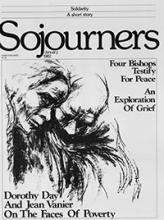Once more he was coming to Chester's rescue. And it had already been a winter full of rescues.
The wind had swept Lake Michigan with unrestrained fury during the month of January, bringing with it what seemed to be the snow of a new Ice Age. The El trains had run only sporadically during the past week, and pedestrians, perhaps in a subconscious desire to match the weather's barbarism with their own, snapped off car aerials as souvenirs--the aerials frequently being the only clue to the whereabouts of parked cars along the side streets. Later, in spring, the car tops would melt through the packed snow in flashes of rectangular color. But the thaw would not touch the Big Snow for a while yet.
Fortunately Gregory had been able to shovel his blue Chevy out this morning after receiving Chester's call in the early hours of the dawn.
"Hello, Gregory Knudsen speaking."
"Pastor Gregory, is that you?"
"Yes--well, hello, Chester. What can I do for you?" he said, already mentally preparing to leave the warm safety of his bed.
Chester needed fuel oil for his furnace. If he did not get some more soon, he would freeze, he said. Trapped by his age and the bitter cold and the drifts piled against his deteriorating, shingled house, he called the man who had befriended him three short years before. The occasion then had been the funeral of Chester's only sister. Pastor Gregory, new in Lincoln Block, had acquiesced over the phone to Kerdigan the undertaker's plea to conduct this service. Chester, Kerdigan, and a distant Detroit cousin of the deceased attended. Ever since, Pastor Gregory had remained one of Chester's few surviving links with the world.
Read the Full Article

